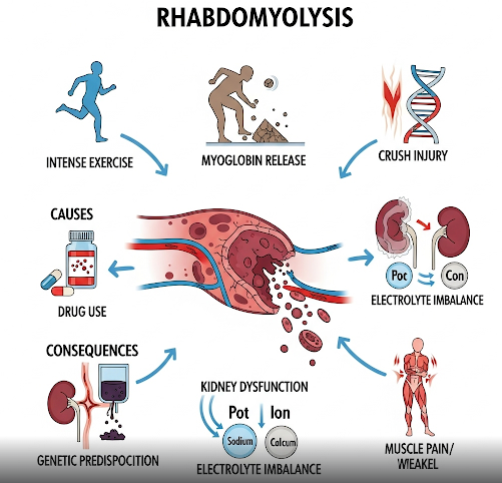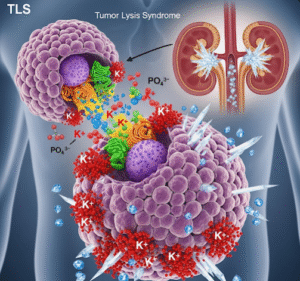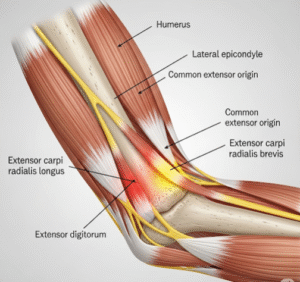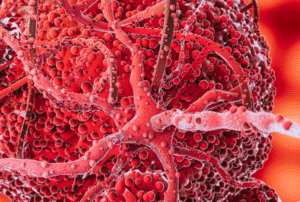Overview
Rhabdomyolysis is a serious medical condition characterized by the rapid breakdown of damaged skeletal muscle tissue, releasing muscle cell contents like myoglobin into the bloodstream. This can lead to kidney damage and other systemic complications. In Korea, prompt diagnosis and advanced medical care ensure effective management and reduce risks associated with rhabdomyolysis.
What is Rhabdomyolysis?
Rhabdomyolysis occurs when muscle fibers break down rapidly due to injury or other causes, releasing toxic substances such as myoglobin, potassium, and enzymes into the blood. These substances can cause kidney injury, electrolyte imbalances, and in severe cases, life-threatening complications.
Symptoms
- Muscle pain, tenderness, and weakness
- Swelling of affected muscles
- Dark, tea-colored urine
- Fatigue and malaise
- Fever, nausea, or vomiting in some cases
- Confusion or irregular heartbeat in severe cases
Causes
- Trauma or crush injuries
- Intense physical exertion or prolonged immobilization
- Certain medications and drugs (e.g., statins, cocaine)
- Infections
- Genetic muscle disorders
- Heatstroke or severe dehydration
- Electrolyte imbalances
Risk Factors
- Recent injury or surgery
- Excessive exercise, especially in untrained individuals
- Use of illicit drugs or certain medications
- Pre-existing muscle or metabolic diseases
- Prolonged immobilization (e.g., unconsciousness)
Complications
- Acute kidney injury (due to myoglobin toxicity)
- Electrolyte imbalances causing cardiac arrhythmias
- Compartment syndrome (increased pressure in muscle compartments)
- Disseminated intravascular coagulation (DIC)
- Permanent muscle damage
Prevention
- Adequate hydration during intense physical activity
- Avoidance of harmful drugs and toxins
- Prompt treatment of muscle injuries
- Monitoring and adjusting medications known to cause muscle damage
Treatment Options in Korea
Korean hospitals provide comprehensive care for rhabdomyolysis:
- Early Diagnosis: Blood tests for muscle enzymes (CK), myoglobin levels, kidney function tests, and electrolyte monitoring.
- Aggressive Hydration: Intravenous fluids to flush out myoglobin and protect kidneys.
- Electrolyte Management: Correction of potassium, calcium, and other imbalances.
- Dialysis: In severe cases of kidney failure.
- Treatment of Underlying Causes: Addressing infections, discontinuing causative drugs, or managing trauma.
- Monitoring: Continuous cardiac monitoring for arrhythmias and regular assessment of muscle and kidney status.













